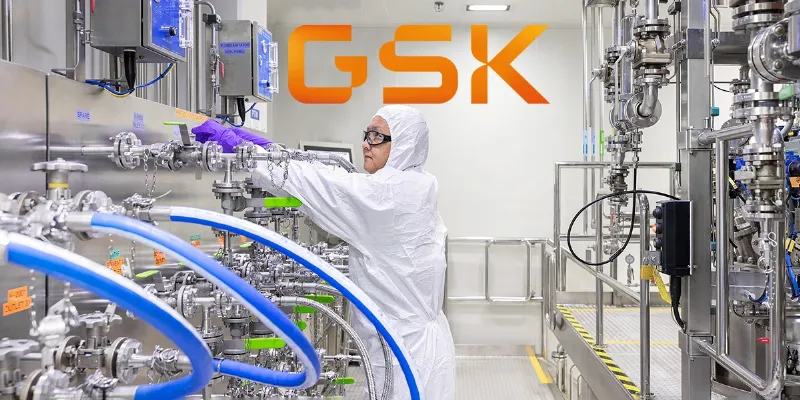Pfizer and BioNTech Report Positive Results for Combined Influenza and COVID-19 Vaccine


Pharma |
26 October 2023
Pfizer and BioNTech have reported encouraging results from a combined influenza and COVID-19 vaccine trial. The Phase 1/2 study demonstrated strong immune responses against both viruses. This single injection has the potential to combat two major respiratory diseases. A Phase 3 trial is forthcoming, and the vaccine has received Fast Track Designation from the U.S. FDA.
Pfizer, in collaboration with BioNTech, has revealed promising outcomes from their joint clinical trial of a combined vaccine targeting both influenza and COVID-19. The trial measured the safety, tolerability, and efficacy of the combination vaccine candidates among adults aged 18 to 64. This development could pave the way for a single injection to combat two significant respiratory diseases.
The vaccine, tested during its Phase 1/2 study, has shown to elicit strong immune responses against influenza A, influenza B, and SARS-CoV-2 strains. Notably, the combined flu-COVID vaccine was compared against a licensed influenza vaccine and Pfizer and BioNTech's Omicron BA.4/BA.5-adapted bivalent COVID-19 vaccine during the same appointment. The data has been encouraging, indicating its potential in effectively handling the two viruses.
Prof. Ugur Sahin, CEO and Co-founder of BioNTech, stated that the positive results for the combined vaccines confirm their potential, noting:
“Studies of confirmed viral infections suggest that COVID-19 adopts a seasonal pattern with peaks in fall and winter, similar to other respiratory diseases. Co-infections as well as consecutive respiratory infection during this period can further increase risk of severe illness. Combination vaccines have the potential to become a mainstay of routine vaccination against respiratory diseases, especially for the vaccination of populations who have a higher risk of severe illness.”
The trial's topline results confirmed that the combined vaccine formulations had a safety profile aligning with the standalone COVID-19 vaccine by the companies. Moreover, immunogenicity results from the Phase 1/2 trial met the criteria applied to regulatory approved vaccines against the respective influenza and SARS-CoV-2 strains.
Dr. Annaliesa Anderson, Senior Vice President and Head of Vaccine Research and Development at Pfizer, expressed optimism about the findings:
“We are encouraged by these early results in our Phase 1/2 study of our combination vaccine candidates against influenza and COVID-19. This vaccine has the potential to lessen the impact of two respiratory diseases with a single injection and may simplify immunization practices for providers, patients, and healthcare systems all over the world. mRNA-based vaccines have demonstrated their ability to induce robust antibody and T-cell responses, and we look forward to starting Phase 3 clinical development. Today’s results are an important achievement towards our ambition of providing a broad portfolio of respiratory combination vaccines.”
The duo aims to initiate a pivotal Phase 3 trial soon, with the data from the current trial slated for publication in a reputed peer-reviewed journal. Additionally, the combined vaccine candidate has been fast-tracked by the U.S. Food and Drug Administration (FDA) for its potential to revolutionize immunization against these respiratory diseases.
A Study to Evaluate the Safety, Tolerability, and Immunogenicity of Combined Modified RNA Vaccine...
Study Overview / Brief Summary: Substudy A: This is a Phase 1 randomized, open-label study to describe the safety and immunogenicity of up to 3 dose- level combinations of modRNA quadrivalent influenza vaccine (qIRV (22/23)) and bivalent BNT162b2 (original/Omi BA.4/BA.5). Participants will receive either: qIRV (22/23)/bivalent BNT162b2 (original/Omi BA.4/BA.5), at 1 of the 3 dose-level combinations, qIRV (22/23) at dose level 1, qIRV (22/23) at dose level 2, or bivalent BNT162b2 (original/Omi BA.4/BA.5) at dose level 1 administered concurrently in the opposite arm to commercially licensed quadrivalent influenza vaccine (QIV). Substudy B: This Phase 1/2 study will describe the safety, tolerability, and immunogenicity of quadrivalent influenza vaccine (qIRV)/bivalent BNT162b2 (original/Omi BA.4/BA.5), trivalent influenza vaccine (tIRV)/bivalent BNT162b2 (original/Omi BA.4/BA.5), and bivalent influenza vaccine (bIRV)/bivalent BNT162b2 (original/Omi BA.4/BA.5) when given concurrently with licensed quadrivalent influenza vaccine (QIV).











Comments
No Comments Yet!